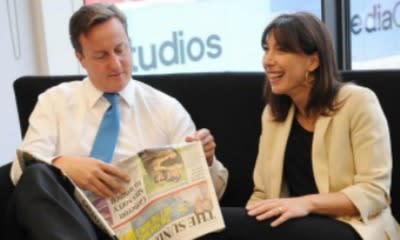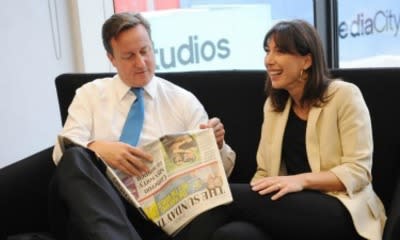PM Sorry For 'Sexist' Remarks To Women MPs
David Cameron has apologised for sounding sexist in the Commons as a poll has suggested the Government is struggling to appeal to women.
The Prime Minister told The Sunday Times he was sorry for remarks made to Angela Eagle and Nadine Dorries "that just came out wrong and caused the wrong impression".
In April he told Ms Eagle, the shadow chief secretary to the Treasury, to "calm down, dear" , which many found to be extremely patronising.
In September, he faced criticism when he told one of his own MPs, Ms Dorries, that he knew she was "frustrated", which some took to be a double entendre.
Justine Roberts, the co-founder of Mumsnet , said: "I'm glad he apologised for those comments which I thought were very sexist.
"And I think that's a good thing [he apologised] but I do think that the real issue and the real reason why his support amongst women is dropping is not about that."
"In fact the evidence shows support was dropping well before he made those remarks. It is about the policies," she added.
The policies she is referring to include cuts to child benefits, pensions and public sector jobs, which have left many women feeling alienated by the coalition and have been blamed for the fall in popularity.
The poll commissioned for The Sunday Times found that 50% of women think Mr Cameron is doing badly as a Prime Minister; 53% think the coalition is bad for them and 64% think their financial situation will get worse over the next 12 months.
Labour deputy leader Harriet Harman said the cuts were disproportionately hitting women and described Mr Cameron as "out of touch".
She told Sky News it was right the Prime Minister apologised for his "shameful" remarks which were, she said, intended to make male MPs laugh.
Former Labour pollster Deborah Mattinson said: "Women determine the outcome of every election and women have decided every election since the last war. And they're going to be incredibly important.
"The coalition did have women on their side after 2010, Labour had lost a lot of women voters and women were quite enthusiastic about the coalition, we're now seeing that lead fall away."

 Yahoo News
Yahoo News 

